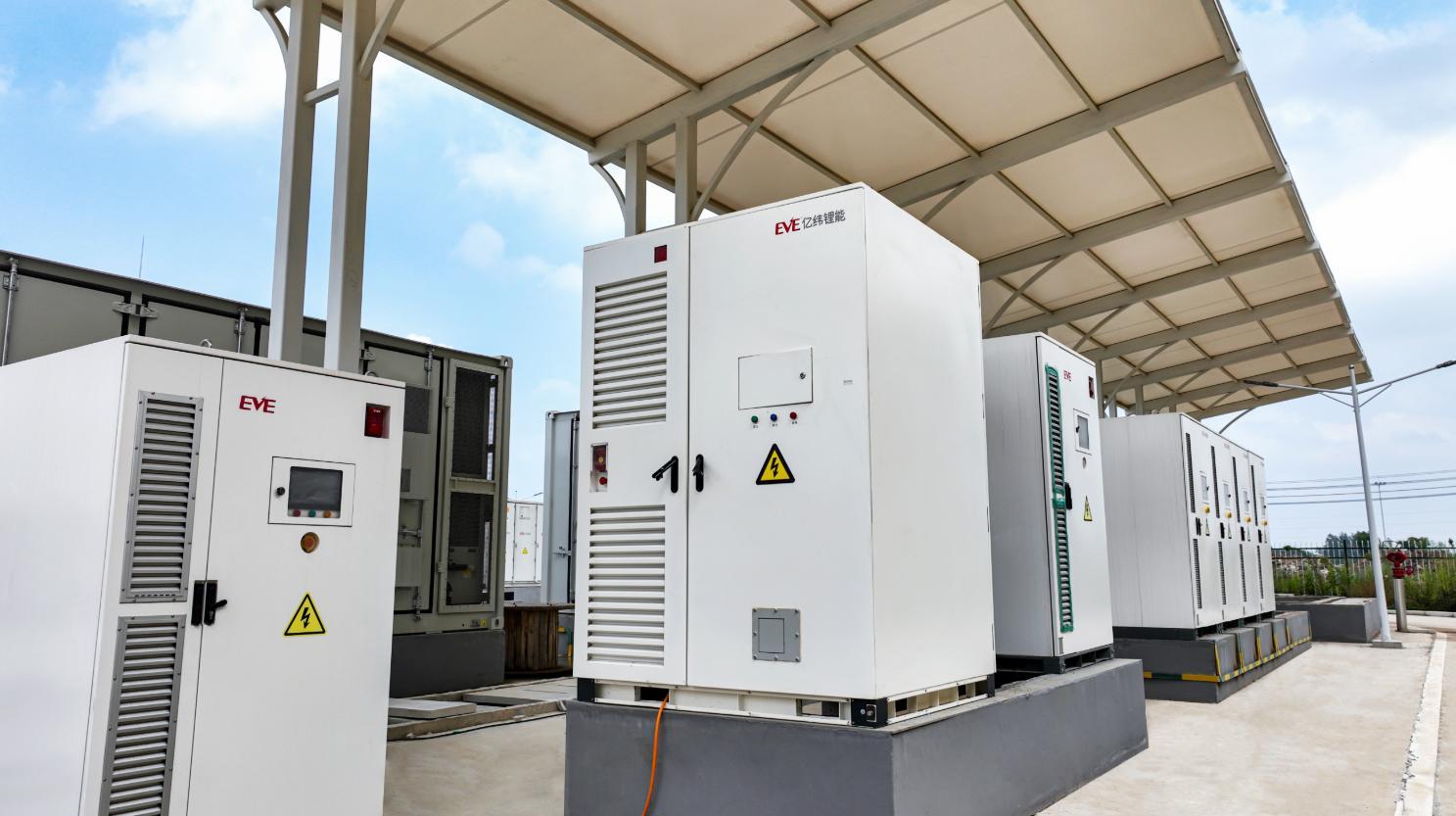
EVE Energy has successfully deployed and grid-connected its first large-scale sodium-ion battery energy storage system at its Jingmen base, marking the system’s formal entry into commercial operation. This achievement represents a major breakthrough for the company in the field of new energy storage technologies and injects fresh momentum into the growth of the energy storage industry and the global transition to green energy.
The newly commissioned sodium-ion battery energy storage system was independently developed and designed by EVE Energy. It utilizes NF155L sodium-ion cells, which—based on the unique advantages of the NFPP chemistry—deliver high safety, wide operating temperature range, high-power capability, long cycle life, and low carbon footprint.

With a cycle life exceeding 30,000 cycles, support for 1P or higher power discharge, and reliable performance across a broad temperature range of -40℃ to +60℃, the NF155L cell is well-equipped to meet diverse energy storage requirements. Moreover, thanks to its optimized electrochemical design, the NF155L offers superior safety performance—supporting extended storage at 0% state of charge (SOC)—and ensures reliability throughout storage, transportation, and assembly. Additionally, its extended service life and eco-friendly composition enable over 42% reduction in lifecycle carbon emissions compared to lithium-ion batteries.
At the system level, the key advantages include:
● Intrinsic Safety + Dual-Level Fire Protection
The system significantly reduces the volume and proportion of flammable gas under extreme thermal runaway conditions, substantially lowering explosion risks at the source. Dual fire suppression mechanisms at both the module and cabinet levels form a comprehensive safety protection system.
● End-to-End Manufacturing + Flexible Deployment
The entire system—from cells to cabinets—is independently designed and manufactured, with 100% in-house production of core components. It is fully compatible with established lithium-ion battery storage manufacturing processes and supports rapid mass production. The system also allows flexible cabinet configuration, making it adaptable to a wide range of application scenarios.
“The successful grid connection of this 180 kWh sodium-ion battery energy storage system is a critical step in transitioning sodium-ion technology from the lab to real-world application,” stated the project lead. “Compared to lithium-ion batteries, sodium-ion batteries possess inherent advantages in raw material cost and resource availability, and are expected to see broad adoption in large-scale and distributed energy storage in the future.”
The commissioning of this system marks another strategic milestone for EVE Energy following its lithium-ion battery initiatives, further expanding its energy storage product portfolio. The company’s NF155L sodium-ion battery has already been recognized by multiple energy storage customers, with industrialization efforts advancing rapidly.
Looking ahead, EVE Energy will continue to deepen its R&D and pursue iterative innovation in sodium-ion battery technology, accelerating the large-scale commercialization of these systems. By collaborating with industry partners, EVE Energy is committed to promoting the global shift toward clean, low-carbon energy and contributing to a sustainable energy future.
Next:Lithium ion Battery Safety: 7 Warning Signs You Should Never Ignore
Previous:BESS Maintenance: Best Practices for Safety and Longevity